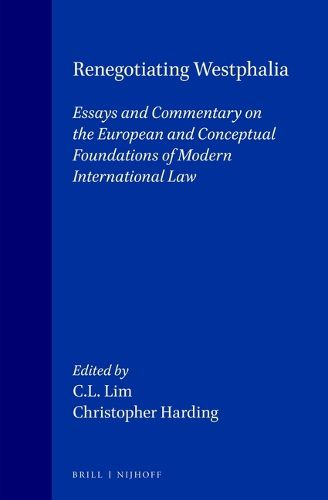Readings Newsletter
Become a Readings Member to make your shopping experience even easier.
Sign in or sign up for free!
You’re not far away from qualifying for FREE standard shipping within Australia
You’ve qualified for FREE standard shipping within Australia
The cart is loading…






This collection of papers addresses two main themes: firstly, whether there is a distinctively European contribution to or even leadership in, the contemporary formation and evolution of international law; secondly, the extent to which non-governmental actors (e.g. NGOs, international organizations, companies, individuals) contribute decisively to the formation of international law at the present time. These issues are explored within a number of different contexts of contemporary significance, in particular: the protection of human and minority rights; protection of the environment; control of transnational organized crime; prosecution of war crimes and crimes against humanity; the definition of statehood and the right to self-determination; and transnational commercial and economic activity. The discussion is firmly located within the theory of international law and relations and also the continuum of international history. Comparisons are drawn with both global and other regional developments to test the hypothesis of a European international law .
$9.00 standard shipping within Australia
FREE standard shipping within Australia for orders over $100.00
Express & International shipping calculated at checkout
This collection of papers addresses two main themes: firstly, whether there is a distinctively European contribution to or even leadership in, the contemporary formation and evolution of international law; secondly, the extent to which non-governmental actors (e.g. NGOs, international organizations, companies, individuals) contribute decisively to the formation of international law at the present time. These issues are explored within a number of different contexts of contemporary significance, in particular: the protection of human and minority rights; protection of the environment; control of transnational organized crime; prosecution of war crimes and crimes against humanity; the definition of statehood and the right to self-determination; and transnational commercial and economic activity. The discussion is firmly located within the theory of international law and relations and also the continuum of international history. Comparisons are drawn with both global and other regional developments to test the hypothesis of a European international law .